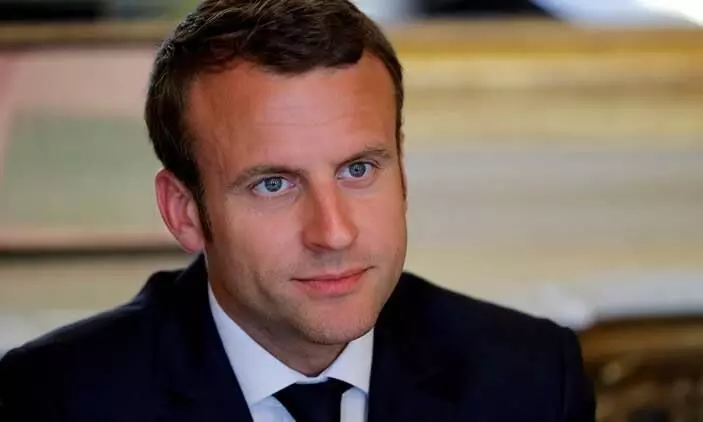
Macron's comments trigger backlash; boycott calls across Muslim world
text_fieldsAmidst rising sentiment against France across Muslims countries, marked by calls and steps for boycott of French products, France has urged Middle Eastern countries to end calls for boycott of French goods, BBC has reported.
The boycott moves had come in response to French President Emmanuel Macron's defence of the right to show cartoons of the Prophet Muhammad, after the incident in which a French teachers killed for showing the cartoons. The French foreign ministry said the "baseless" calls for a boycott were being "pushed by a radical minority".
French products have gone off the shelves, mostly in supermarkets, in Kuwait, Jordan and Qatar, accompanied by protests in Libya, Syria and the Gaza strip. Food items, fashion goods and beauty products, which make up most of French merchandise in these countries' markets, were the worst to suffer, as online calls started going viral across the Arab world against the French stance.
In response to popular demand, an extensive retail chain in Qatar, Al-Meera, for example issued circular to its outlets to stop selling French goods, citing the French stance as the reason. In Kuwait, non-governmental Union of Consumer Co-operative Societies issued a directive in response to 'repeated insults' against the Prophet Muhammad.
In Saudi Arabia, the largest economy in the Arab world, saw a hashtag calling for boycott of the French supermarket chain Carrefour as the most trending topic.
The latest responses came in the wake of Macron's comments after the French teacher was killed. While the president and the French government recognise the cartoon as an act under freedom of self-expression, the stance became more provocative with Macron's comments that fell foul of Muslims' sentiments.
Muslims do not make or use pictures of Prophets, not to speak of Prophet Muhammad, and see making fictitious images as sacrilegious, and any one attempting it is seen as provoking the community.
As if to further infuriate the Muslim population, Macron had said that the teacher in question, Samuel Paty "was killed because Islamists want our future" but France would "not give up our cartoons". And swearing by its form of secularism, France deems curbs on freedom of expression in favour of one particular community as a negation of unity.
Reactions came from the Muslim world, the more vocal ones from Turkey and Pakistan who accused Macron of not respecting 'freedom of belief' and marginalising millions of Muslims in France. Turkish President Recept Tayyip Erdogan even recommended 'mental checks' for his flawed views on Islam. Erdogan had earlier also asked "What's the problem of the individual called Macron with Islam and with the Muslims?" The virtual stand off led France to recall its ambassador in Turkey on Saturday for discussions. On its part, Turkey affirms that it did offer condolences on the death of the teacher.
However, the French foreign ministry while acknowledging the boycott moves said these were baseless calls by a minority and should stop immediately.
Even before the teacher's death, Macron had asked for tougher laws against what he called 'Islamist separatism' in France. French Muslims see this as yet another attempt to alienate them, especially because of Macron's comment that Muslims in France were threatening to form a 'counter society'. Muslims are estimated to make six million of France's population of 6.7 crores.























